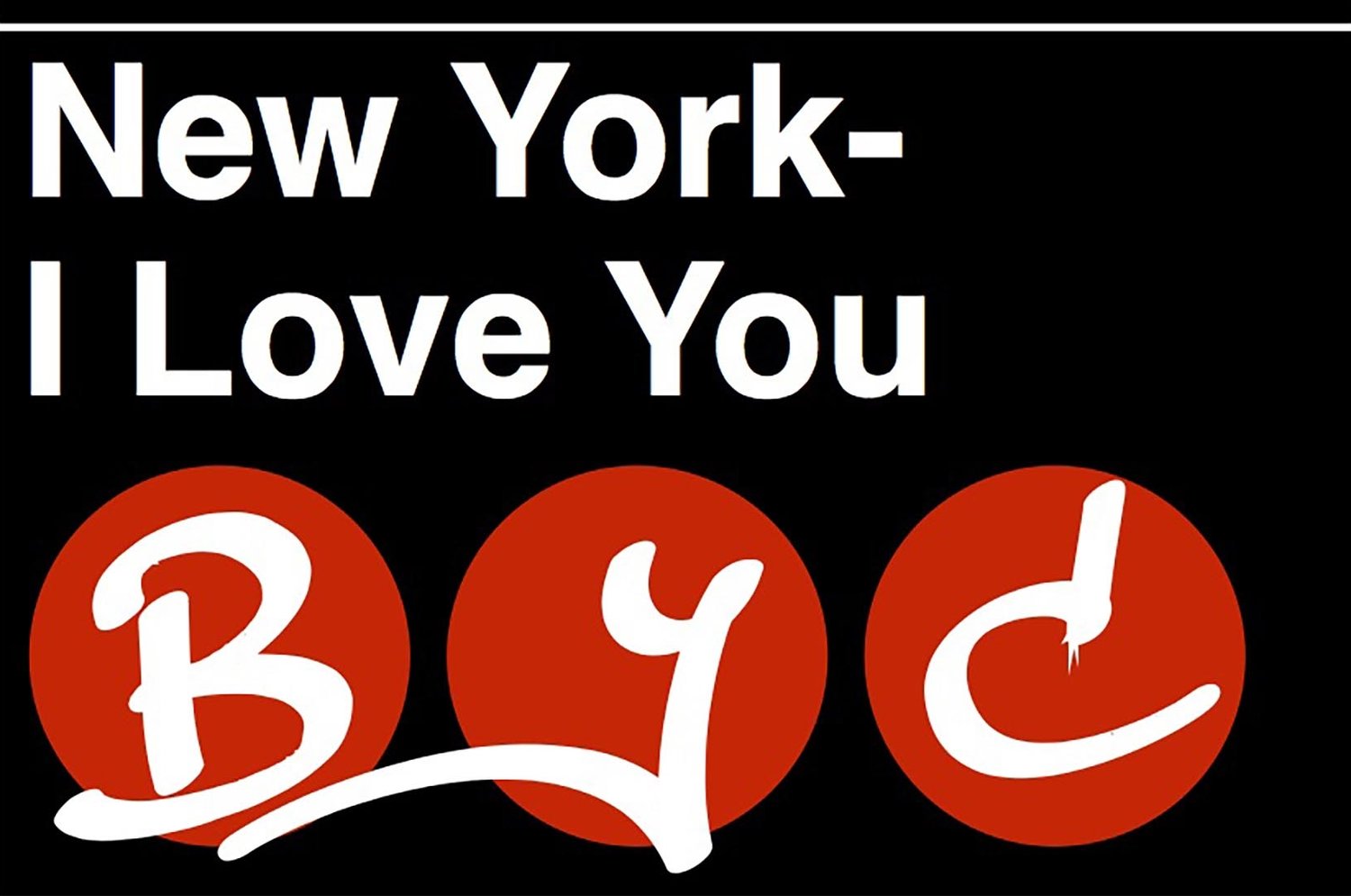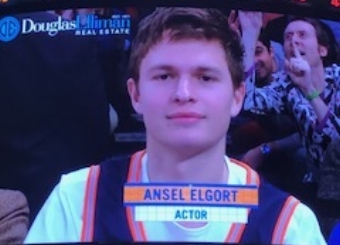Alexis Says Goodbye to Season 1 of New York, I Love You But You've Changed
Note: You can hear this letter read in audio form under the episodes tab.
Hey! Welcome to the prelude to the very last episode of New York I Love You, But You’ve Changed which will air tomorrow. In this episode you will meet Gary Lum, the steward, guardian and shopkeeper of Wing on Wo & Co- the oldest, continuously running business in Chinatown.
Gary’s wife Lorraine’s grandfather Walter Eng, opened Wing on Wo as a general store in 1890 at its first location at 13 Mott Street. In 1925, Mr. Eng bought the building at 26 Mott Street where the store still resides- though its specialty turned over from meats and herbs to carefully selected porcelain wares when ownership of the store was passed to Walter’s daughter Nancy in 1970 after Walter’s passing. Gary has witnessed and shaped the evolution of the store for decades, first under the management of Nancy and her husband Shuck and since 2016 under the management of his daughter, Mei- who you will hear from in part two of this episode.
This interview was recorded inside Wing on Wo & Co, which is one of the most special places I’ve visited in my ten years in New York City- and when you listen to my interviews with Mei and Gary, you will see why.
The Lum’s story of tenacity, legacy and loyalty is New York City at its very best. And I can’t imagine a more fitting interview to close this series with.
I know, I know- you’re probably like but Alexis, we just started getting to know all these really awesome New Yorkers! There is so much of the city left to see!!!
You’re right. And Sometimes I feel that way too. And other times I feel like I’ve been producing this show for literally ever.
I feel that way for two reasons.
One, when I started this project 6 months ago I knew it would be time consuming but I definitely did not understand how much emotional labor goes into making a podcast like this.
Spoiler alert- it’s a lot.
At times it was really lonely and really scary and really hard, and sometimes the audio didn’t sound as good as I wanted it to and sometimes I felt like I missed an opportunity to ask a great question and sometimes people stopped answering my emails and sometimes someone reacted to my work in a way that made me question why I ever even sat down in front of a microphone in the first place.
But it also has been so so worth it.
That leads me to the second reason why I feel like I have been doing this forever- because it just kinda feels right.
I started this podcast within days of quitting my full time job in education because I thought I needed evidence of a completed project to get X, Y or Z job that I thought would lead me to some vague goal of starting a career in “media.”
Over the past few years I’ve shot at least 200 copies of my resume accompanied by cover letters I spent WAY too much time on and writing samples that I was really proud of but were probably never read into the job search cloud, and not a lot of people bit. Of those who did bite, they reeled me in for a few interviews but eventually cut me loose. They didn’t seem to believe that the soft and hard skills I racked up as an educator translated, or maybe they knew I had no idea what I wanted or maybe they just didn’t like me- all of the above are possible.
Each of these rejections hurt upon receipt but looking back now I thank GOD (aka Robyn Rihanna Fenty) that they rejected me. Each of those rejections lit and rekindled a fire under my ass that fueled the creation of this series which in turn got me into a fellowship that is giving me the space and accountability to work on a whole new project which is the reason I am no longer producing this podcast.
Now just to be clear, I am nowhere near where I want to be with my career or my personal life and I know I have a lot of work left to do to get to a place where I am satisfied in both departments. And I am sure there will continue to be a lot of imperfect audio and missed opportunities and unanswered emails and lukewarm (or even super cold) reactions- but I now fully understand that I want to pursue a career in longform audio storytelling.
But there is one thing I hadn’t thought about until the very end of my interview with Gary. I didn’t consider how the person sitting in the chair across from me, answering my questions, felt about sitting in that chair and answering those questions. I was just and still am so grateful to Tommy, Ruth, Nick, Mairys, Emma, Jonah, Kya, Joe, Mei and Gary for giving me their time and their perspective that I just saw their contributions as taking a chance on some independent podcast producer who didn’t, and still doesn’t, really have any idea what she’s doing as a favor to lend me a sliver of legitimacy. And while what i just said may be very true, I didn’t even consider that they might be grateful to me and my show for giving them an opportunity to be heard. As I was thanking Gary for sharing his story he said this:
"Thank you for wanting to know it and listen to it and my wish for you is to be awakened and inspired. And you are because you are awakening and inspiring things that I put in sleepy corners of myself and it's been very healing to share them give voice to them. We all we all want to tell a story. Just feeling a sense of safety and comfort to do it."
His words validated the necessity of every late night I spent teaching myself audio programs and sending emails that made me want to throw up and writing questions I was afraid were too forward or too boring and feeling sure I would fail.
Not to mention the number of times I cried while walking aimlessly around Brooklyn in the middle of the day listening to some depressing mix of Sampha, The XX, Lorde, and SZA when I felt really uninspired to do anything related to this podcast- or really anything at all, or in a yoga class when I was really feeling the stress of having no financial safety net- crying spells that almost always followed me onto the subway home afterwards (shout out to Eastern Parkway, Laughing Lotus Yoga center and the 4,5 and Q trains for providing me places to shed lots of tears in front of lots of strangers over the past six months).
Gary’s words were validating because no matter what this podcast contributes to my career, he assured me that the show is living out its original mission- it is holding space for those New Yorkers whose voices are increasingly marginalized within the popular narrative of our city. And no matter what happens within that narrative, these recordings will always exist.
This is a really emotional interview. It took me a few days to feel ready to return to the recording of it to start editing because Gary shares things about his family and his past that echo truths that I often don’t want to confront about my own family and my own past. As Gary says we are all taught:
"Yeah don't tell the secret. Yeah it will be capitalized on you know. So the secret the secret is not a secret because we share. We share these type of things. All of us have these type these type of dark corners and closets and crates and it takes a lot of work to confront them and then also share them with someone else in a vulnerable way. But it's so liberating to do it."
And he’s right- it is a lot of work. It is really hard to confront what is in these crates- especially when their contents remind you that the people who raised you didn’t give you everything you knew you needed. But confronting these contents is so empowering, and while we don’t want to dig up and share these secrets, we should.
When we crack open and sort through the contents of these long sealed crates we realize it is in within our power to shape our lives into what we actually want them to be- not what our dark corners and crates dictate for us.
And I’ll leave you with this… over the last several years I’ve done a lot of digging through my own dark corners. And here’s one thing I’ve found, since the moment I was able to put myself on a Metro North train at the age of 15 and exit a world I knew I didn’t want to be a part of, this city and its faces and its places have been the most stable force in my life. It has been here for me during the times when I felt like no one else was. It has always had my back, even when it hasn’t had its own.
And if the same is true for you and the people you love, I really hope these interviews inspired you to think about who really lives in New York City and what they value. Remember, we are all in this together.
Enjoy these interviews, and enjoy your summer. I think this is when NYC is at her very best. I’ll see you guys in a few months.





